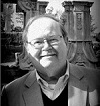FIFTH LECTURE "Literary Translation: Challenges, Pains, and Pleasures" (January 10)
The Stanford University-J. F. Oberlin University Commemorative Lecture Series
| Speaker | Paul McCarthy Professor Emeritus of Comparative Culture Surugadai University |
|---|---|
| Language | English (Q&A may be in Japanese) |
| Date and time | January 10, 2014 (Friday), 16:10–17:40 |
| Place | Meimeikan A204, Machida Campus |
Abstract:
I have spent much of the past two decades translating Japanese literature of various sorts into English, my native language. As Prof. Edward Seidensticker pointed out in an essay collection entitled Japanese and I (Nihongo to watakushi), an amazing number of people ask whether you translate “into or out of your mother tongue?” But if one considers how much more difficult it is to write, as opposed to simply reading, a foreign language, the question should answer itself. It is regularly asked, though, of all translators, it seems.
The first writer I chose was Tanizaki Jun’ichiro, a natural choice since he was the subject of my doctoral dissertation. (In a way, I decided to translate him rather than attempt to theorize about his literature.) Later, I was asked to translate the stories of ancient China of Nakajima Atsushi by a Cultural Affairs Agency-related organization; and, still later, by the same group, a collection of loosely related fictional pieces by Kanai Mieko (unusually for me, a living writer, and a woman). And finally, I translated approximately one quarter of the massive four volumes of Shiba Ryotaro’s Clouds above the Hill for Mr. Saito Sumio’s Japan Documents, a project that has just been brought to completion. Each of these projects presented different problems and gave rise to different frustrations and satisfactions. I propose to illustrate some of these with specific examples from the above four writers, quoting the original and offering my translations as examples, sometimes good, sometimes bad. Perhaps we can learn something about the nature of the two languages from this, as well as about what must go on in translation between them.

Paul McCarthy (Ph.D., Harvard University) is translator of Tanizaki Jun’ichirō’s A Cat, a Man, and Two Women (original: Neko to Shōzō to futari no onna) and many other works, and most recently, co-translator of Shiba Ryōtarō’s Clouds above the Hill (4 volumes, 2013; original: Saka no ue no kumo).
